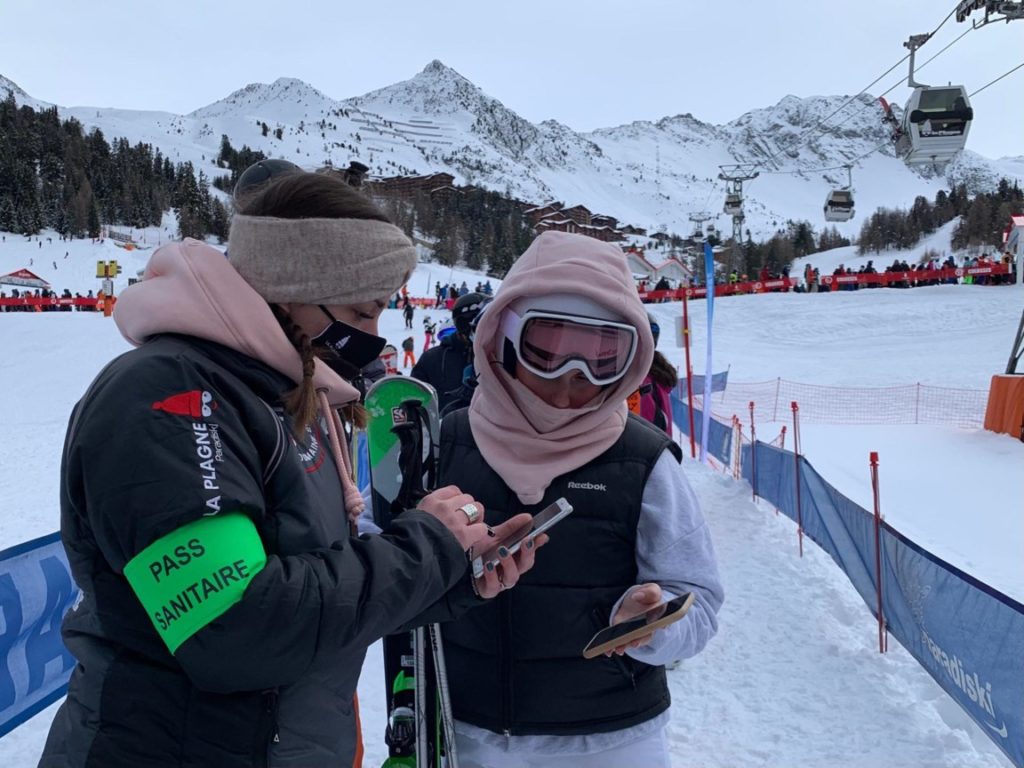Young people who are not yet eligible for a booster dose in Belgium are deliberately trying to get infected with the coronavirus in order to obtain a recovery certificate to travel during the upcoming holidays.
People aged under 18 are not yet able to receive a booster dose of a Covid-19 vaccine in Belgium, which has seen some 16- and 17-year-olds intentionally trying to get infected in order to visit certain holiday destinations where rules have been tightened regarding vaccination validity.
Domus Medica, the association of general practitioners in Belgium, confirmed that various doctors have heard of youngsters deliberately becoming ill, according to reports from De Standaard.
They see the recovery certificate, which is accepted by most countries with stricter measures as an alternative to being boosted, as their travel ticket, however, health experts are warning that this is a big risk to take.
"We would not recommend young people infection themselves, because even if they are less likely to get very ill, there is always a risk of a more serious course of the disease, especially if you have not yet received the booster," Joris Moonens, spokesperson for the Flemish Agency for Care and Health, told The Brussels Times.
Access to freedoms abroad
Austria and Italy, both popular winter sports destinations during the Carnival holidays at the end of February, announced that they would be limiting the validity of the primary vaccination course on 1 February, resulting in a vaccination certificate no longer being valid six months after the last dose was administered.
Since 15 January, the validity period to attain a vaccination pass in France, which is now needed to go skiing and dine out, has been restricted to seven months after the last dose.
Due to a delayed decision from the European Medicines Agency (EMA) regarding booster vaccines for teenagers, people under the age of 18 in Belgium can't receive a booster dose, meaning for many, their vaccination status will not be enough to have a valid health pass, which is needed to gain access to restaurants and bars, as well as ski-lifts and cable cars in many destinations.
Related News
- France introduces vaccination pass: What changes?
- 'Totally irresponsible': Belgian ex-basketball player deliberately infects himself
- Covid Safe Ticket of 220,000 Brussels residents could expire in March
"There are steps being taken at the political level to solve this holiday problem, both by the ministry of foreign affairs as well as individual ministers, to see if these countries will consider relaxing the conditions for those who have not yet received the booster," Moonens explained.
The validity period for entering the countries remains nine months, in line with the latest EU recommendations. However, all vaccinated EU travellers have to show a negative PCR result taken within 48 hours or a negative antigen test taken within 24 hours of arrival to enter Italy.
Rapid political decision needed
Moonens highlighted that countries can make their own decision regarding internal policies regarding health passes, meaning it cannot be guaranteed that diplomatic efforts will result in rules being relaxed for youngsters.
He stressed that, instead, the decision from the Superior Health Council, which was asked by the different ministers of health to issue advice about a booster dose for teenagers, and possibly allowing them to get this additional shot with an ‘informed consent’ form, is a more viable solution.
"We are mainly looking toward the weekend, when the health council is expected to make an announcement about the booster dose, so by next week, it should be clear whether the dose can be offered in this way."
"I would say wait a few days because things will evolve, either the booster will be made available, or other solutions can be achieved through diplomatic means, both of which are much safer alternatives than infecting yourself," Moonens concluded.
The Brussels Times contacted EMA for information on the decision to allow booster doses for teenagers in light of these latest reports but did not receive a response at the time of publishing.

